Quality Assurance
We guarantee top-quality epoxy resin products that are made to achieve the highest safety standards with our food-safe resin coating, ensuring your peace of mind.
Protect your marine investments with Epoxy King's specialized marine epoxy systems. Our saltwater-resistant formulations deliver lasting repairs and superior protection where regular adhesives fail. Trusted by boat builders, marine contractors, and serious DIY enthusiasts for over two decades.
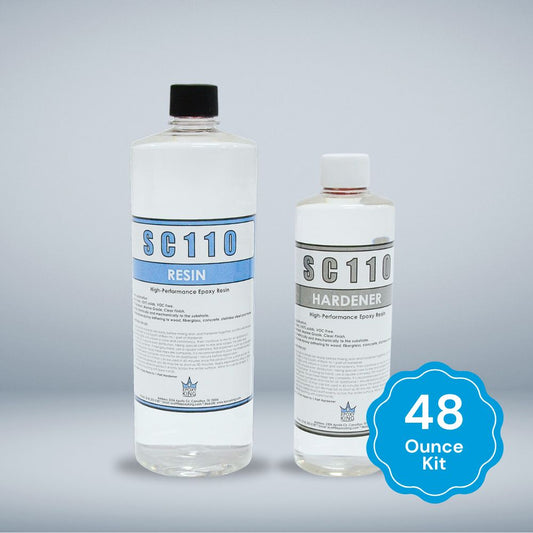
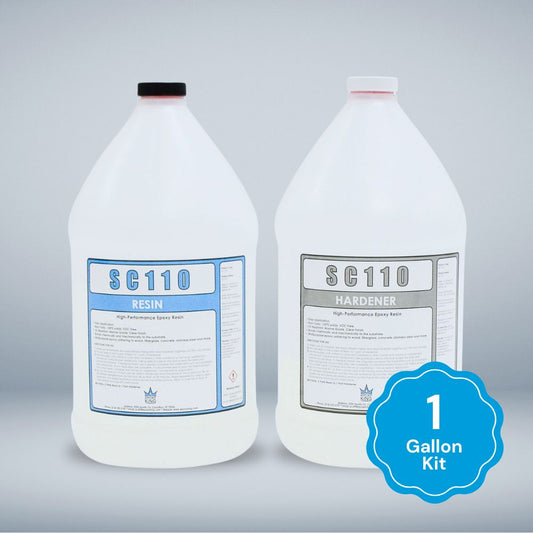
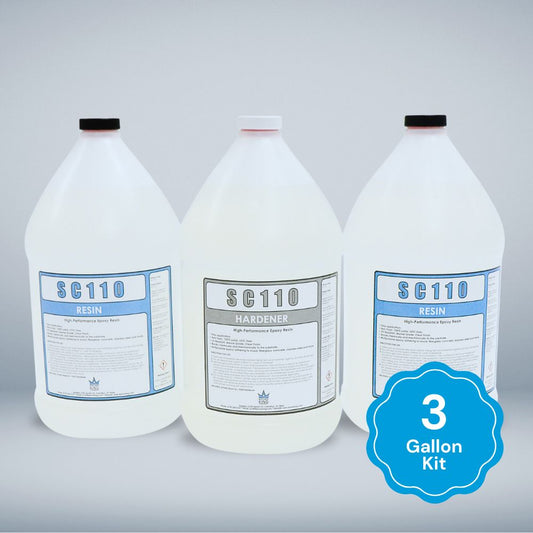
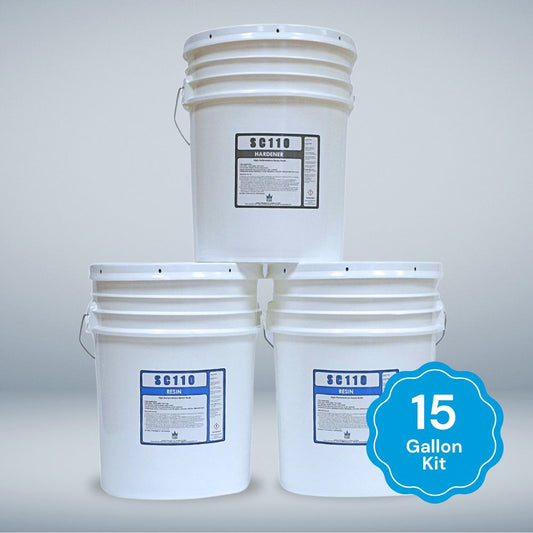
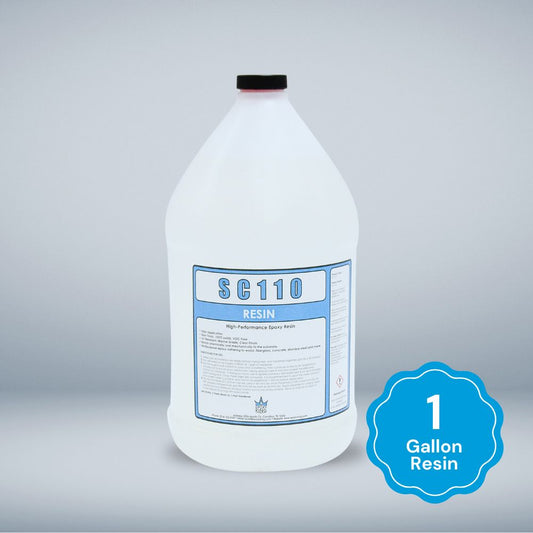
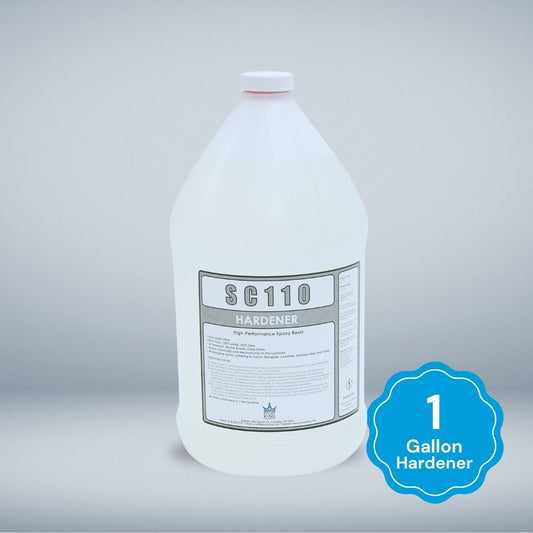
Marine epoxy coating represents a specialized class of two-part resin systems engineered specifically for saltwater environments. Unlike standard hardware store adhesives, these advanced formulations resist corrosion, maintain flexibility under stress, and provide waterproof barriers that last decades rather than months.
The chemistry behind marine-grade resin involves specialized hardeners and additives that create molecular structures capable of withstanding constant moisture exposure, temperature fluctuations, and the corrosive effects of saltwater. This isn't just marketing - it's fundamental materials science applied to real-world marine challenges.
Professional boat builders and repair facilities rely on these systems because failure isn't an option when lives depend on structural integrity. The cost difference between marine and standard epoxy reflects genuine performance advantages that matter in demanding applications.
Standard epoxy breaks down rapidly in saltwater environments. Marine formulations resist chemical attack from salt, maintaining bond strength and protective properties for years in normal service.
Marine epoxy creates bonds that often exceed the strength of the materials being joined. Properly applied systems routinely achieve outstanding bond strength to fiberglass, wood, and metal surfaces.
True moisture barrier properties prevent water infiltration that causes delamination and structural failure. Critical for below-waterline applications where any failure could be catastrophic.
Marine environments experience extreme temperature swings. Quality marine epoxy maintains properties from below freezing temps up to 190°F, accommodating thermal expansion without cracking or losing adhesion.
Specialized additives slow down the yellowing process and prevent degradation that makes standard epoxy brittle and weak. Marine formulations maintain clarity and strength even after years of direct sunlight exposure.
Boats flex. Rigid adhesives crack. Marine epoxy systems maintain some flexibility to accommodate the constant movement and vibration encountered in marine service.
Gel coat damage, impact repairs, and structural reinforcement require products that won't fail when you're miles from shore. Marine epoxy penetrates deeply into fiberglass, creating repairs often stronger than the original material.
Non-slip deck coatings, cabin sole installation, and hardware mounting all demand adhesives that maintain grip and strength in wet conditions. Marine epoxy provides the reliability needed for safety-critical applications.
Classic wooden vessels require specialized care. Marine epoxy penetrates wood fibers while creating moisture barriers that preserve irreplaceable craftsmanship. Essential for maintaining traditional boats in modern conditions.
Pilings, dock hardware, and marine infrastructure face constant assault from saltwater and weather. Standard materials simply don't survive these conditions long-term.
Specialized additives slow down the yellowing process and prevent degradation that makes standard epoxy brittle and weak. Marine formulations maintain clarity and strength even after years of direct sunlight exposure.
Professional boat building demands resins that wet out fabric completely while providing optimal strength-to-weight ratios. Marine laminating resins offer extended working times and superior mechanical properties.
The performance gap between marine and standard epoxy isn't subtle - it's dramatic. Marine epoxy significantly outperforms standard epoxy in durability, strength, and environmental resistance. It offers up to 10 years of saltwater exposure resistance compared to just 3–6 months for standard epoxy. With a bond strength exceeding 4,000 PSI, it doubles the strength of standard epoxy. Marine epoxy also handles a wider temperature range (0°F to 190°F), provides excellent UV stability, and maintains moderate flexibility, whereas standard epoxy is brittle and less UV resistant. Although it has a longer working (45–60 minutes) and cure time (12–24 hours), its performance comes at a cost—typically 3 to 4 times higher than standard epoxy.
Chemical Resistance: Marine environments contain numerous corrosive elements beyond simple salt. Quality marine epoxy resists acids, bases, and organic solvents that would quickly degrade standard formulations.
Adhesion to Wet Surfaces: Perhaps most critically, marine epoxy bonds reliably to damp surfaces where standard products fail completely. This capability proves essential for real-world repair situations.
Long-term Economics: While marine epoxy costs more initially, the total cost of ownership favors quality products dramatically. Consider replacement costs, labor time, and potential safety issues when making decisions.
Success depends more on preparation than product selection. Remove all traces of oil, wax, and contamination. Sand to create mechanical adhesion. Clean with appropriate solvents and allow complete drying.
Precise ratios matter. Use calibrated measuring tools rather than estimating. Mix thoroughly but avoid introducing air bubbles. Work in batches appropriate to available working time.
Temperature affects everything from working time to final properties. Humidity can cause surface defects. Plan applications during favorable weather conditions when possible.
Usually trace to inadequate surface preparation or contamination during application. Take extra time with cleaning and preparation - it's time well invested in long-term success.
Cold temperatures dramatically slow cure times. Hot conditions can accelerate curing beyond practical working limits. Plan accordingly and have environmental controls available.
While marine epoxy tolerates moisture better than alternatives, dry conditions still produce optimal results. Use temporary coverings when necessary to control moisture during application.
Marine coatings may yellow slightly over time, making exact matches difficult. Consider this factor when planning repairs in visible areas where aesthetics matter.
Structural failures at sea aren't just expensive - they're potentially dangerous. The reliability difference between marine and standard products can literally be life-saving in emergency situations.
Boats represent significant financial investments. Proper materials protect that investment while maintaining resale value. Visible failures from cheap materials hurt market value more than the cost of quality repairs.
Marine contractors and boat yards stake their reputation on lasting results. That's why professionals consistently choose proven marine epoxy systems for critical applications.
Quality marine epoxy repairs typically last 10 years versus 1-2 years for standard alternatives. The mathematics strongly favor doing it right the first time rather than accepting repeated failures.
Small repairs might use convenient repair kits with pre-measured components. Larger projects benefit from bulk packaging that reduces per-unit costs while ensuring consistent results.
Cold weather formulations extend working time and ensure proper curing in challenging conditions. Hot weather variants prevent premature setup that can compromise application quality.
Structural repairs demand maximum strength formulations. Cosmetic work might prioritize clarity and UV resistance.
Professional contractors need extended working times and higher build thickness capability. DIY users benefit from foolproof mixing ratios and comprehensive instructions.
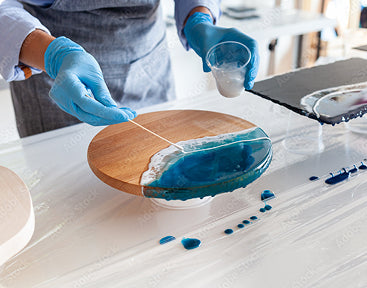
We guarantee top-quality epoxy resin products that are made to achieve the highest safety standards with our food-safe resin coating, ensuring your peace of mind.
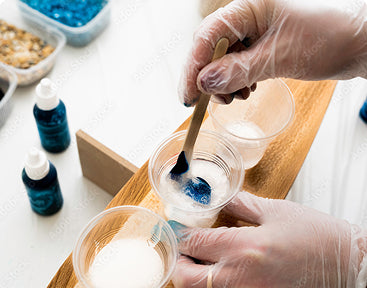
With years of experience in the industry, we have the knowledge and expertise to provide you with the best solutions for your food-safe projects.
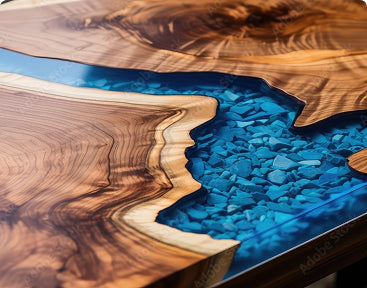
Our extensive range of epoxy resin products offers options for every need and budget, ensuring that you find the perfect fit for your project.
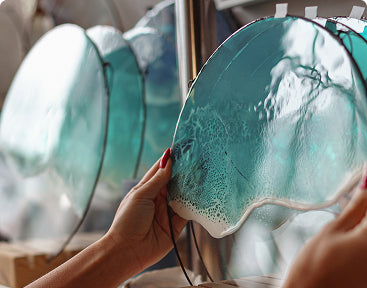
At Epoxy King, customer satisfaction is our priority. We strive to exceed your expectations with our products and service, earning your trust and loyalty.
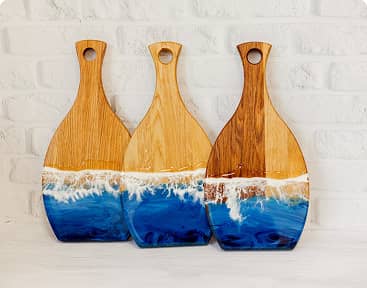
When you choose Epoxy King, you can count on reliable products and dependable service every time. Trust us for all your food-safe epoxy needs and experience the difference.
Here’s a comprehensive FAQ that covers various aspects
Initial cure typically occurs within 12 hours at 77°F, with full cure in 7 days. Cold temperatures extend these times significantly, while heat accelerates curing.
Generally not recommended. Most paints and finishes create weak adhesion points that will eventually fail. Remove existing coatings for optimal results.
When stored indoors at room temperature, SC110 has a shelf life of up to one year.
Some marine epoxy systems meet FDA requirements for potable water contact. Check specific product certifications if this application is required.
Follow local hazardous waste disposal guidelines. Never pour liquid components down drains or dispose of in regular trash. Many areas have special collection days for such materials.
Yes, most marine epoxy systems accept paint and other topcoats after full cure. Sand lightly to provide mechanical adhesion for subsequent coatings.
